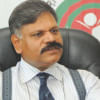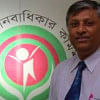UN to gather evidence on genocide in Myanmar
The UN has planned to amass evidence of genocide on Rohingyas through a judicial investigation, said United Nations Special Adviser on Genocide Prevention Adama Dieng in a meeting with National Human Rights Commission (NHRC) Chairman Kazi Reazul Hoque.
Talking to newsmen after the meeting, the NHRC chief said UN was now trying to amass evidence of five "acts of genocide" as Myanmar military carried out the atrocities on ethnic minority community.
"Adama told me that an independent UN judicial investigation team needs to be sent to Myanmar ... if they find the fives acts of genocide, the perpetrators could be exposed to justice," he said.
The NHRC chief, however, echoed Adama's fears that Myanmar might not allow the UN team to visit its western Rakhine State, the scene of atrocities.
Naypyidaw earlier repeatedly declined to allow international groups from visiting the state since the army-led persecution began in August 25 last year forcing over 700,000 Rohingyas to take refuge in Bangladesh.
The Article 2 of the UN Convention on the Prevention and Punishment of the Crime of Genocide (1948) defines "genocide" as "any of the acts committed with intent to destroy, in whole or in part, a national, ethnical, racial or religious group.
The acts are -- killing members of the group; causing serious bodily or mental harm to members of the group; deliberately inflicting on the group conditions of life calculated to bring about its physical destruction in whole or in part; imposing measures intended to prevent births within the group and forcibly transferring children of the group to another group.
Hoque said if the team found elements of genocide, the UN could follow instances of Rwanda and Kosovo for trying the Myanmar generals and others concerned in the International Criminal Court (ICC) in The Hague.
The UN special adviser on the Prevention of Genocide revealed the plan days after UN assistant secretary general for human rights Andrew Gilmour said Myanmar's "ethnic cleansing" of Rohingya Muslims was still going on.
"It appears that widespread and systematic violence against the Rohingya persists ... I don't think we can draw any other conclusion from what I have seen and heard in Cox's Bazar," Gilmour said.
Separately, the United Nations High Commissioner for Refugees earlier this week said it was concerned about people living just inside Myanmar at its border with Bangladesh
Hoque urged neighbouring countries China and India to mount at least "economic pressure" on Myanmar to stop atrocities and take back their nationals ensuring their dignity and rights.
He said Bangladesh would need to continue diplomatic efforts to convince China and Russia, the two permanent member of UN Security Council who opposed the UN resolution on Rohingyas, so they remain neutral to pass the resolution next time.

 For all latest news, follow The Daily Star's Google News channel.
For all latest news, follow The Daily Star's Google News channel. 






Comments